Filter by
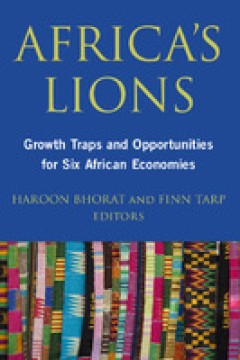
Africa's Lions
Africa's Lions examines the economic growth experiences of six fast-growing and/or economically dominant African countries. Expert African researchers offer unique perspectives into the challenges and issues in Ethiopia, Ghana, Kenya, Mozambique, Nigeria, and South Africa. Despite a growing body of research on African economies, very little research has focused on the relationship between econo…
- Edition
- -
- ISBN/ISSN
- 9780815729501
- Collation
- -
- Series Title
- -
- Call Number
- -
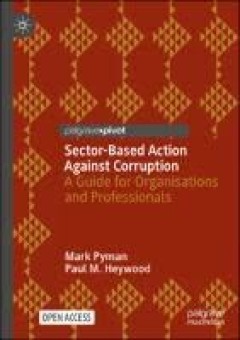
Sector-Based Action Against Corruption
This chapter outlines the aims of the book, explains the reform concept that underpins our thinking and provides an overview of the Sector Focus Remediation Action (SFRA) approach. It also explains how we came to write the book and sets out its structure.
- Edition
- -
- ISBN/ISSN
- 9783031593369
- Collation
- XXI, 182
- Series Title
- -
- Call Number
- -
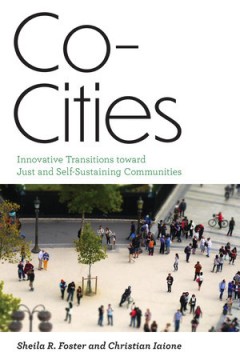
Co-Cities: innovative transitions toward just and self-sustaining communities
"A new framework for experimental and innovative "city-making" for urban resources and services to be developed and governed in a collaborative, socially, and economically inclusive ways"--OCLC-licensed vendor bibliographic record.
- Edition
- -
- ISBN/ISSN
- 9780262369930
- Collation
- 1 online resource.
- Series Title
- -
- Call Number
- -
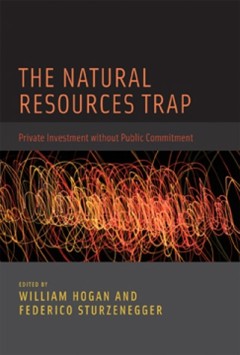
The natural resources trap :private investment without public commitment
Volatility in commodity prices has been accompanied by perpetual renegotiation of contracts between private investors in natural resource production and the governments of states with mineral and energy wealth. When prices skyrocket, governments want a larger share of revenues, sometimes to the point of nationalization or expropriation; when prices fall, larger state participation becomes a bur…
- Edition
- -
- ISBN/ISSN
- 9780262275538
- Collation
- 1 online resource (xiv, 519 pages) :illustrations
- Series Title
- -
- Call Number
- -
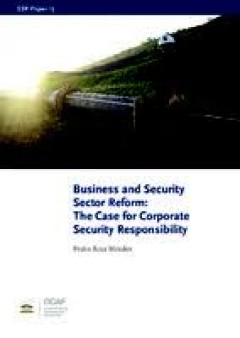
Business and Security Sector Reform the Case for Corporate Security Respons…
Challenges to security and human rights involving extractive and other industries are addressed in a framework known as business and human rights (BHR), which shares many challenges and goals with SSR. This paper describes the grounds where BHR and SSR coincide in principles, actors and activities and which synergies can be built on that base. Opportunities for bridging BHR and SSR are drawn fr…
- Edition
- 1
- ISBN/ISSN
- 9781911529408
- Collation
- -u
- Series Title
- -
- Call Number
- -

E-engagement: A guide for Public Sector Managers
Over the last twenty years, advanced communication technologies have become pervasive throughout Western society. These technologies have not only revolutionised the delivery of public and private services, they have shaped consumers’ expectations about service quality. This guide (written for managers who have an interest in expanding their approach to public engagement, rather than IT profe…
- Edition
- -
- ISBN/ISSN
- -
- Collation
- -
- Series Title
- -
- Call Number
- -
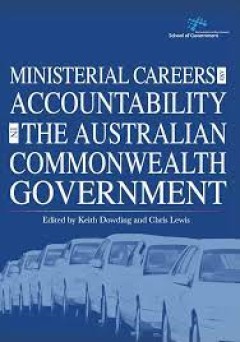
Ministerial Careers and Accountability in the Australian Commonwealth Government
This book examines the roles, responsibilities and accountabilities of Australian cabinet ministers. It examines the sorts of jobs ministers do, what is expected of them, what they expect of the job and how they (are supposed to) work together as a team. It considers aspects of how they are chosen to become ministers; how they are scrutinised by parliament and the media; and how ministers thems…
- Edition
- -
- ISBN/ISSN
- -
- Collation
- -
- Series Title
- -
- Call Number
- -
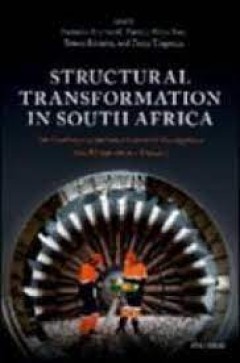
Structural Transformation in South Africa The Challenges of Inclusive Indust…
Taking South Africa as an important case study of the challenges of structural transformation, the book offers a new micro-meso level framework and evidence linking country-specific and global dynamics of change, with a focus on the current challenges and opportunities faced by middle-income countries. Detailed analyses of industry groupings and interests in South Africa reveal the complex set …
- Edition
- -
- ISBN/ISSN
- 9780192894311
- Collation
- -
- Series Title
- -
- Call Number
- -
 Computer Science, Information & General Works
Computer Science, Information & General Works  Philosophy & Psychology
Philosophy & Psychology  Religion
Religion  Social Sciences
Social Sciences  Language
Language  Pure Science
Pure Science  Applied Sciences
Applied Sciences  Art & Recreation
Art & Recreation  Literature
Literature  History & Geography
History & Geography